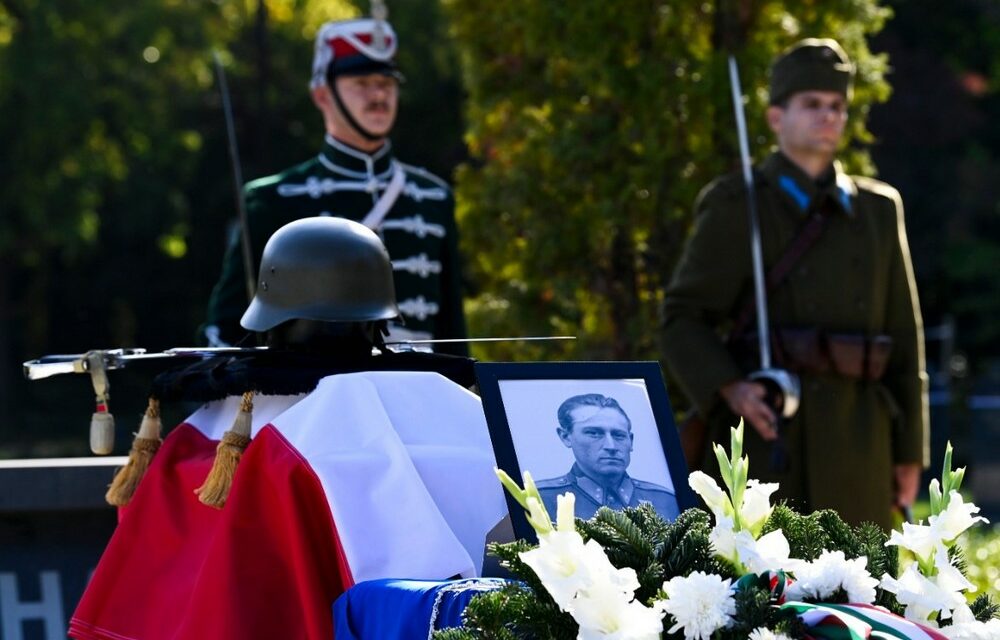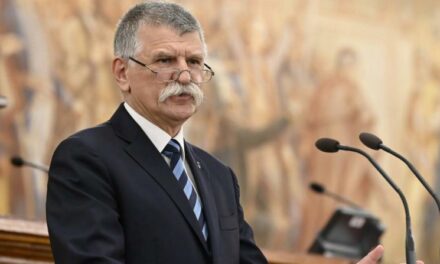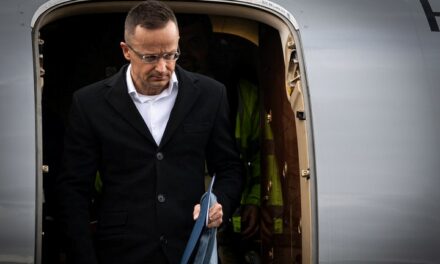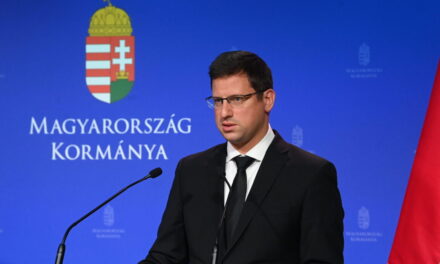The II. Kristóf Szalay-Bobrovniczky took part in the ceremonial reburial of Hungarian national defenders who died a heroic death in World War II at plot 52 of the Fiumei út cemetery. The Minister of National Defense said: "We must remember and remind those who sacrificed their lives in battle, because it is their position that should serve as an example and a guide in our world today, without a solid set of values."
Kristóf Szalay-Bobrovniczky added: "the heroes of our wars proved their bravery, their commitment to their nation and their comrades by their deeds".
"The practice of the ideas embodied by them, i.e. the acceptance of hierarchy, the order of command and obedience, heroism during combat, honor and loyalty, and the virtues of self-sacrifice are not only timeless values for the army, but also essential for the existence, unity and survival of the nation requirement"
said the minister.
In his speech, the minister emphasized that the most ancient cult of humanity is the respect for the ancestors, i.e. the dead, and anyone who violates this is an offense against divine laws, because everyone deserves a proper burial and undisturbed final resting place. "This is especially true for those who fall as warriors on the battlefield. "Whoever risks his life out of a sense of duty and falls short in what turns out to be the final fight should be given the highest recognition," he declared.
The minister reminded him that in the two great conflagrations of the twentieth century, the enlisted soldiers and the nation suffered huge losses in an extremely short period of time.
He noted
to this day, there are "a lot of negative misconceptions and distortions" regarding the role and leadership of the Hungarian units in the two world wars, these "occurred for political interest in the left-wing dictatorship of the second half of the 20th century" and are still very strong in public opinion.
"Unfortunately, this is the case despite the fact that the Hungarian soldiers who fought in the two world wars stayed true to their oath to the end, setting an example of honor and duty," said Kristóf Szalay-Bobrovniczky. He noted: the unworthy falsification of history particularly affected the soldiers who died in the Second World War and the surviving veterans, the heroic dead were not even allowed to be remembered, "veterans were most often treated with disadvantageous and humiliating discrimination".
"This is also undeserved because, contrary to the generally held opinion, the members of the Royal Hungarian Armed Forces fought well in the Second World War as well. Their performance was limited by their much poorer equipment compared to the other belligerents, and these soldiers did not lack courage, just like their predecessors," he said.
The minister said
102 deceased Hungarian heroes exhumed from various battlefields and cemeteries in Hungary are being reburied in the heroic plot of the Cemetery on Fiumei Street.
"The ashes of the heroes brought from the burial places of Környe, Akasztó, Magyaralmás, Besenyőtelek, Cinkota, Tiszaörs, Rétság, Budapest, and Valkó will finally be placed in a worthy place, Hungary expresses its thanks and gratitude for their service," he said.
Kristóf Szalay-Bobrovniczky recalled: the hastily established Hungarian-German military cemetery in the vicinity received the victims of the operations launched to liberate Budapest besieged by Soviet troops in Vértes from the very end of 1944 until March 18, 1945.
The minister recalled that his grandfather, Tamás Bobrovniczky, then a hussar captain, as the commander of the 6th company of the Royal Hungarian 3rd Ferenc Nádasdy Hussar Regiment, not far to the east of Környe, was very seriously wounded by a series of machine guns at Felsőgalla on March 17th, during the melee in Vértes, his life was saved by a cigarette case and which the minister keeps to this day.
"The soldiers taken out of the nearby cemetery and going to their final resting place were my grandfather's comrades," noted the minister. Kristóf Szalay-Bobrovniczky emphasized that his memories of his grandfather define his entire life, the memories "are about the former hussar officer who, even in his late old age, bore all the misery of his bullet-torn leg with dignity, ignoring the troubles that accompanied his life, which his military past brought upon him in the new system". .
According to the minister, it is "strange, uplifting and very honorable" that he, the descendant, is the one who can pay the military tribute to his grandfather's fallen comrades, which would have been his grandfather's duty, but that era did not give him the opportunity to do so.
The Minister reminded that the Ministry of National Defense, in obedience to the moral command of merciful care due to the heroic dead, makes a constant and significant effort to find the final resting places of the fallen soldiers, to identify those who rest in them and to take care of their graves.
MTI
Photo: A II. Reburial of Hungarian national defenders who died a heroic death in World War II in the Fiumei út Cemetery / Photo: MTI/Tamás Kovács












